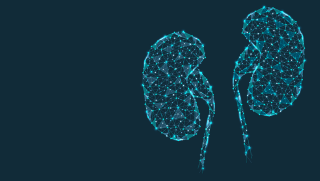H2 Leaving Page Headline
Ut eum dolor sanis et at voluptur sintin corro of- fi cimpere nonsequis uta elia nimpo Datenschutzhinweise riorem aquam.
Do you want to link to another Amgen Canada site?
You are now leaving the Aranesp.ca website. Please note that these links are being provided as a convenience and for informational purposes only.
You are now leaving the Aranesp.ca website
The linked sites are not under the control of Amgen, and Amgen is not responsible for the content available on the linked sites. Such links do not imply Amgen's endorsement of material on any other site, and Amgen disclaims all liability with regard to your access to such linked websites. Amgen provides links to other Internet sites as a convenience to users, and access to such linked sites is at your own risk.


Anemia and chronic kidney disease (kidney failure)
What is anemia?
Anemia is a condition where your blood does not contain enough red blood cells. Red blood cells are responsible for carrying oxygen to your organs and body tissues. If the number of red blood cells in your blood is decreased, the amount of oxygen delivered throughout your body is also decreased. This may cause several symptoms that are typical of anemia including fatigue, weakness and shortness of breath.
What is chronic kidney disease?
Chronic kidney disease (CKD) is a term used to describe a number of conditions that damage kidneys or cause reduced kidney function for three months or more. Kidney disease can range from mild to severe. Sometimes people can develop kidney failure. Kidney failure is also called end-stage kidney disease (ESKD).
“End-stage” kidney disease does not mean the end of your life. End-stage means the end of your kidney function: your kidneys can no longer filter your blood. If your kidneys fail, there are a number of treatment options available. These include different forms of dialysis, transplantation and conservative kidney management (non-dialysis supportive care).
Why does kidney failure cause anemia?
In patients with kidney failure, the kidneys do not produce enough of the natural hormone, erythropoietin, which encourages your bone marrow to produce more red blood cells.
